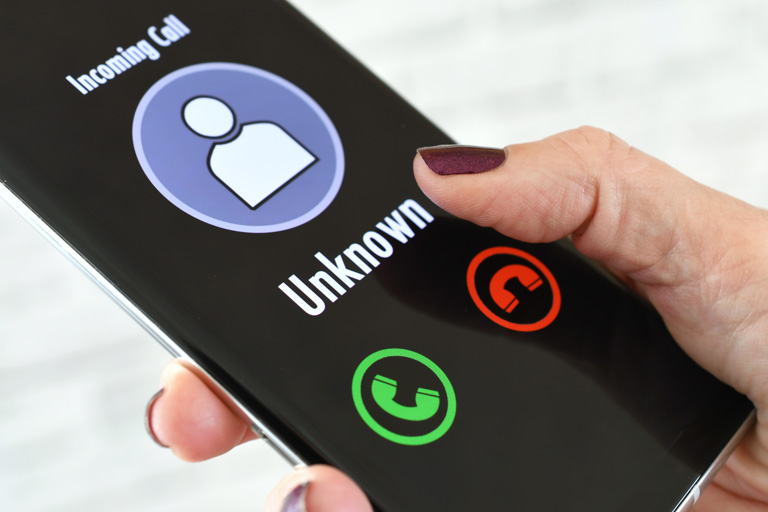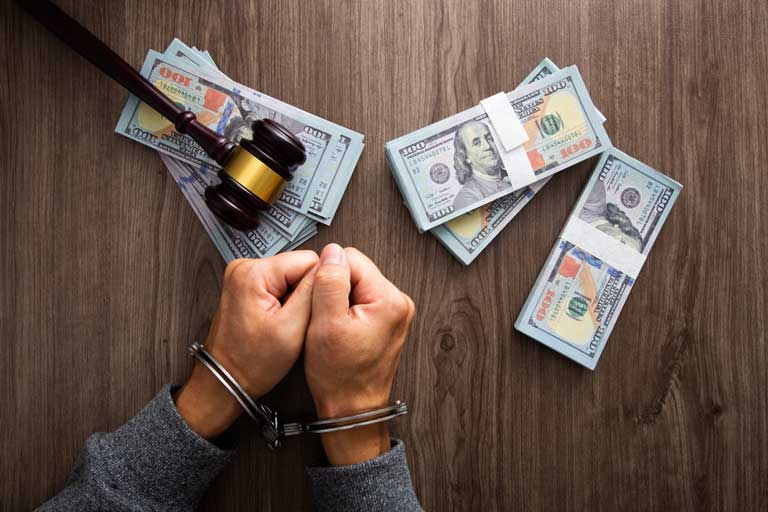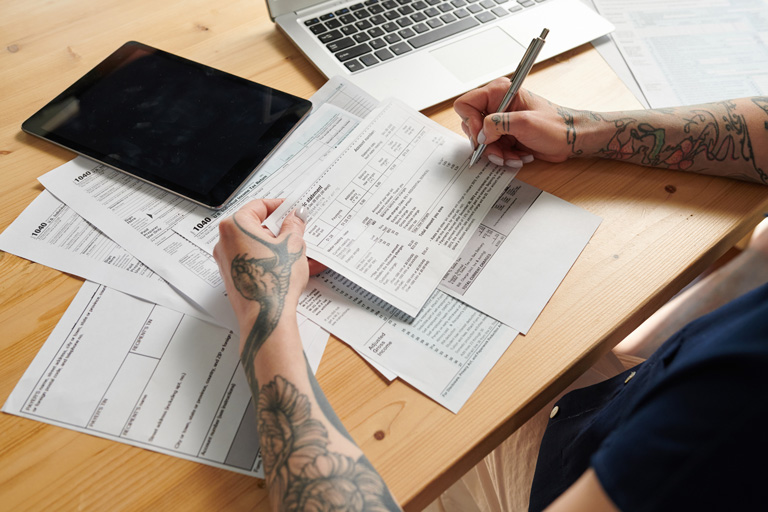In recent years, new digital payment technology and card advancements have been created in hopes of disrupting the rising rate of credit card fraud. However, the truth of the matter is, no matter how advanced our prevention measures become, criminals will do anything to work their way into stealing even the most protected data.
This article is aimed at giving insight into what credit card fraud is, how to avoid credit card fraud, and how to protect your data from financial crime.
What is Credit Card Fraud?
Credit card fraud is when a payment is made with a credit or debit card without authorization from the cardholder. Unauthorized users steal a payment card or its digital information to purchase goods or services. Criminals can also use this card information to transfer funds to their personal accounts.
Some forms of credit card fraud include:
- Cloned cards
- Unauthorized in-person transactions
- Card-not-present schemes
- Account takeovers
- New accounts fraud
Who is Affected By Credit Card Fraud?
Credit card fraud is a global concern. However, speaking more closely to home, millions of Americans become prey to financial criminals annually.
Credit card fraud not only costs a cardholder, but it also costs their issuing banks, credit card networks, and the federal economy billions of dollars every year.
On the plus side, many fraud cases can be disputed. Which means a cardholder would not be held responsible for unauthorized charges. However, someone must take on the liability.
Typically, it’s a financial loss for merchants, banks, and credit card companies. This causes a snowball effect, which can take a damaging toll on the economy as a whole.
Credit Card Fraud Statistics
According to a recent annual report, about half of all Americans have fallen victim to credit card fraud. Out of those 127 million Americans, ⅓ had also experienced fraudulent charges numerous times.
With how common credit card fraud is, it is best to know what you are up against and how to better protect yourself. The below statistics from researchers can better help you understand the severity of the financial crime and how Americans are impacted.
- Americans aged 30-39 are the most affected by credit card fraud.
- Only just over half of businesses are “somewhat confident” that they could spot fraudulent activity when it is occurring.
- Over 77% of US merchants sell products online. By next year, these merchants will lose around $130 billion annually on card-not-present transactions. Especially if preventive measures are not strictly enforced.
- Fraud from card-not-present transactions is 81% higher than in-person point-of-sale transaction fraud.
- Credit Card fraud is estimated to cost the global economy around $50 billion in 2030.
- The United States is victim to nearly 40% of all fraud globally.
- Every 2 seconds an American is victimized by credit card fraud.
- EMV chips have helped reduce fraud by 76%.
How Does Credit Card Fraud Happen?
Credit card fraud happens when payment data is accessed by anyone who has malicious intent to use the data to purchase goods or services without the cardholder’s permission. Credit card data can be stolen in many ways. Knowing the most common ways criminals access private data can better prepare you for keeping your information safe.
Phishing Emails
Phishing emails are as the name implies. Criminals use urgent-looking emails or emails from a familiar-looking party as bait to catch and prey on unsuspecting victims. Phishing emails are crafted to trick readers into clicking on a link that will redirect them to a webpage that looks safe or official. This website will then convince victims to enter their personal information, including credit card data.

Phishing Phone Calls
Phishing can also occur by way of a phone. A scammer will call or leave a message saying the cardholder needs to call their bank, social security office, or another official entity urgently. And provide them with the phone number to call. Once the user calls, they will then be prompted to supply personal data, including credit card information to “confirm their identity”
Virtual Kidnapping Ransom
The FBI has issued warnings of virtual kidnapping ransom scams. These scams occur when a phone call is issued to a victim stating their loved one is being held captive. They may even have someone screaming in the background to make the call seem more legitimate. This is usually a scam.
Next, the caller will request money to be wire transferred or credit card information to be sent as ransom. If the callee agrees to send the requested money, the caller may then demand additional payment claiming they never received the first transfer. This type of scam usually targets older generations who are least suspecting.
Spyware
Hackers can attempt to steal your personal information and credit card data stored on your computer or smartphone. They will send emails with links or attachments that when opened, will download spyware.
Spyware is a virtual virus that can export stored information on your personal device to the hacker’s device. Always be vigilant and avoid clicking on unfamiliar links or attachments. And remember to equip your devices with antivirus software protection.
Public WiFi Networks
Free or public WiFi in areas like airports, stores, and hotels can easily be monitored. If a cardholder is shopping online, enters their credit card information, or opens private files, this data can be at risk of theft.
Installing a Virtual Private Network (VPN) can protect your information from public networks. VPNs encrypt online identities and data which makes it more difficult for cybercriminals to gain access to your information.

Data Breaches
Targeted data breaches can pinpoint large institutions for digital criminal activity. Data breaches from these companies can put sensitive customer information at risk. Millions of cardholders had their information stolen during some of the largest data breaches in the last decade. These breaches came from companies such as:
- MySpace
- Yahoo
- Target
- Adobe
- First American Financial Corporation
- Adult FriendFinder
- Etc…
Terminal Skimming
Though not as common today, skimming happens when payment terminals are bugged with recording devices. These devices gather credit card information when the card is inserted or swiped.
You may notice on terminals like the ones at gas stations a security seal that says “do not use if seal has been tampered with”. This is a warning. If the seal has been disturbed, this is a sign that the terminal has been bugged and your card information is not safe to use at that terminal.
Losing a Card and Improper Disposal
Finally, the easiest way credit card information can be stolen is if a card is misplaced, stolen, or lost. If a cardholder leaves the credit card in a public area, criminals can easily use it to make purchases. Additionally, if you are not careful when discarding details of personal information, your data can be stolen. To keep information safe, remember to cut up cards and shred paperwork with personal details that you wouldn’t want anyone to get ahold of before discarding.

How Often Do Credit Card Frauds Get Caught
Authorities always recommend filing a police report when you suspect credit card fraud. Unfortunately, however, it is rare that these cases are ever solved. In fact, less than 1% of reported credit card fraud cases are ever resolved.
Is Credit Card Fraud a Felony?
Credit card fraud is always illegal. However, it may not always be a felony. Credit card fraud’s status as a felony or a misdemeanor will depend on a few criteria. This includes the amount of money stolen and the state that the crime occurred.
A Misdemeanor usually results in shorter jail sentences and smaller fines. Conversely, felonies have more extensive penalties such as years in prison and hefty fines.
Credit Card Fraud Vs Identity Theft
If your credit card has been stolen or your account data has been compromised, this is a form of identity theft. Credit card fraud is when your payment information is used to make unauthorized purchases or money transfers. However, identity theft can be even more disastrous and affect you more extensively than stolen card information alone.
Identity theft is anytime a person’s private information such as social security, date of birth, name, or any other personal data is used to commit a crime, fraudulent activity, or complete unauthorized financial activity.
The effects of identity theft can be extremely tumultuous to clean up. Always keep an eye on your finances including credit card and bank statements. Catching credit card fraud or identity theft right when it happens can save you a lot of headaches in the future.

How to Check if Your Credit Card Information Has Been Stolen
The first way to catch anything fraudulent on your credit card accounts is to always pay close attention to your credit card and bank statements as well as transaction history. Monitoring all your transactions will allow you to notice if there is anything that does not align with your spending history right away.
Next, you will want to keep an eye on your credit report. Any drastic changes in your credit score that would not make sense with your transactions may indicate fraudulent activity. You can check your credit reports for free on a weekly basis from all three credit bureaus: Equifax, TransUnion, and Experian.
If you do see any unusual activity, you should report it to your credit card company immediately. Your credit issuer and your bank will allow you to dispute the charges to your account if you do not believe they are authorized.
Lastly, you can sign up for a monitoring service through one of the credit bureaus, your bank, or an independent company. These services will monitor your credit and help reconcile any financial crime under your identity.
How to Report Credit Card Fraud
If you experience credit card fraud, there are a few things you should do. First, you will want to immediately contact your credit or debit card issuer to report a lost or stolen card or unauthorized transaction. Your issuer will then provide the next steps, including canceling your current account and issuing any chargebacks you deem necessary.
Next, you will inform law enforcement by reporting your case to the Federal Trade Commission (FTC). The FTC shares your report with over 3,000 law enforcement officials. The FTC does warn, however, that they may not solve your individual case. But, your report can help stop and solve other fraud cases.
Last, you will want to contact one or all three credit bureaus to place a fraud alert on your credit report. This alert will inform new potential lenders to verify the identity for any request to open any new accounts under your information. A fraud alert can be canceled at any time.
Am I Responsible for Fraudulent Credit Card Purchases?
The great thing about credit cards, is they offer zero liability protection for fraud. This is thanks to the Fair Credit Billing Act (FCBA), which requires credit issuers to give their cardholders a 60-day window to dispute unauthorized transactions over $50. Additionally, the FCBA limits the liability of cardholders for unauthorized transactions to a maximum of $50.
Conversely, if a criminal were to commit fraud on an account holder’s debit card, the liability could potentially be devastating. A bank account has the potential to be drained completely by fraudulent charges if there is no daily limit set. Or if a cardholder does not notice or report the charges within 60 days of receiving their bank statement.

How to Prevent Credit Card Fraud
Thankfully, with the advances in artificial intelligence and machine learning, credit card fraud can now be more easily detectable on the spot. Issuers and cardholders, however, can do their part as well to help prevent credit card fraud.
Merchants Must Maintain PCI Compliance
The card networks have implemented regulations for all merchants accepting credit cards to follow. The Payment Card Industry Data Security Standard (PCI DSS) was created to help financial institutions and businesses process digital card payments securely. Reducing credit card fraud. If a merchant does not maintain PCI compliance, they are subject to monthly fees.
Use Only Secure Websites
The FBI warns against using unsecured websites when entering any personal information, especially payment information. Noticing website URLs can help users determine which websites are safer than others.
Websites may have the words “Not Secure” at the top of the URL to warn browsers. Other URLs will not say anything, and then some may have a symbol of a padlock. This is to inform the user that the site is secure. Although it is not always a guarantee of safety, the secure symbol can provide a little more trust in the site when entering personal information.
Avoid Giving Card Numbers Over The Phone
The FTC warns against providing credit card information over the phone. Be especially cautious if you receive an incoming phone call requesting payment.
In most cases, if you are the one that initiated the call and you know exactly who you are speaking to, it may be less of a security concern.
You will want to be sure though that the person you are providing this information to is handling it in an appropriate way; Not leaving your card number in an unsecured location or providing access to your card to someone else.

Regularly Check Your Credit Card and Bank Statements
Checking your credit card and bank account statements is one of the best ways to prevent or stop credit card fraud quickly in its tracks. One of the most common ways to do this is by reviewing your monthly credit card statements closely.
Additionally, you can download your bank’s phone app and make sure you recognize every purchase listed on a daily basis. Furthermore, you can set up alerts to notify you of any transaction on your card or any transaction over a certain threshold.
If you see any charges that are suspicious, freeze your card immediately and then contact your credit card company right away.
Always Be Aware Of Your Card’s Location
Remember to always leave your credit cards and wallet or purse in a secure location. Never leave your cards or wallet in an open or visible area. This includes your car. Even if your car is locked, criminals will do anything to get access to your money and private information.
Always be sure to hide away and lock up your belongings. Or you can keep them on you securely at all times, depending on where you are and what you are doing.
Another situation to be cautious about is restaurants. Oftentimes, servers will take your credit card to the back of the restaurant to process your payment. When they are able to take your card out of sight, this can tempt untrustworthy staff to write down your credit card number, expiration date, and security code (CVV). They can later use this information to complete unauthorized purchases under your account.
Delete Credit Card Information From Online Retail Sites
The best possible way to avoid your data being leaked or hacked is to remove stored card information from online websites and apps. As easy as this makes check-out and transactions for eCommerce on websites like Amazon, Etsy, Uber, etc, it may put your information at risk.

Credit Card Fraud Conclusion
Criminals will never be eliminated. And credit cards are always at risk of being used for unauthorized transactions. Therefore, you will never be able to fully escape the possibility of credit card fraud.
However, the good news is that there are laws in place that help card users. You will never be liable for fraudulent purchases. At most, the highest amount you will be liable for is $50. No matter how large the fraudulent charges were.
Regardless, be sure to always keep your personal data and credit card information as secure as possible. Taking the suggested measures listed in this article into action will help you reduce any stress associated with recovering after identity theft or credit card fraud.
To contact sales, click HERE. And to learn more about ECS Payment Processing visit Credit & Debit.
